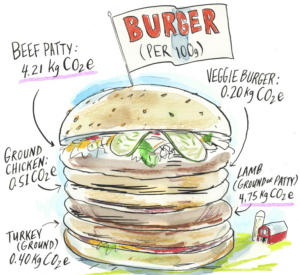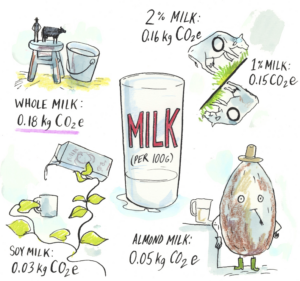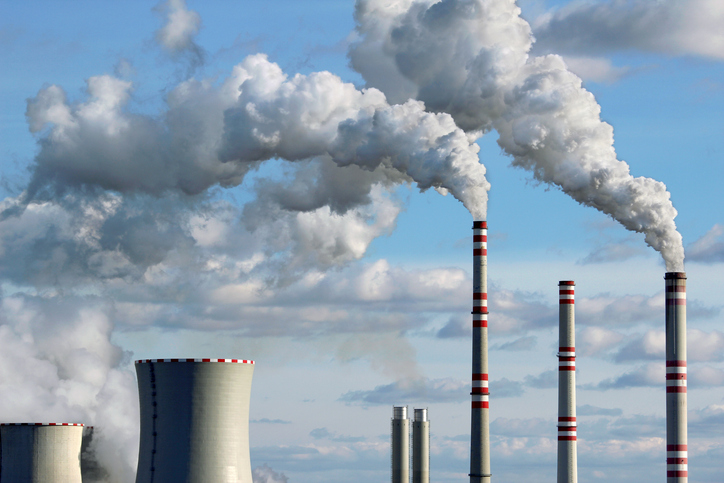Environment: Fossil fuel company profits are delaying grid decarbonisation
March 31, 2024
Securing a liveable planet and the retail price of electricity are important but current fossil fuel profit margins are slowing grid decarbonisation. Water temperature in the Pacific is influencing methane emissions in the sub-Arctic. Enjoy nature this Easter.
Washington’s cherry blossom peak bloom

Whoever is the next President of the USA will have fewer cherry trees to admire in full bloom in the Washington DC spring of 2025. The trees were given to the USA by Japan over a hundred years ago and enjoying the cherry blossom season has become a highlight for locals. But climate change is having its effects.
First, global warming is causing peak bloom (when 70% of the trees are flowering) to occur earlier than previously. This year it happened on March 17th, the second earliest day on record and more than two weeks before the long-term average.
Second, sea level rise is causing problems for the sea wall around Washington’s Tidal Basin and flooding of the area is damaging the trees. Repair of the sea wall will necessitate removal of 158 of the cherry trees, including Stumpy, a crowd favourite.

Profit not price controls the energy transition
In The Price is Wrong: Why Capitalism Won’t Save the Planet, Brett Christophers, a human geographer, argues that cheap electricity from solar and wind will not drive the energy revolution needed to end the fossil fuel era. Profits are more important than being green and cheap. The following are extracts from an interview with Christophers that appeared in the Bloomberg Green newsletter on 25 March 2024.
Bloomberg Green: Why is it important to focus on profits instead of costs when we talk about decarbonizing the grid?
Brett Christophers: There’s this widespread argument that the economics of renewables work and that the only remaining significant obstacles are political and in the planning realm around permissions. The book pushes back quite forcefully against that argument and suggests that that’s a very partial and misleading perspective on the economics of the transition.
The basic argument is simple and it’s something that the world doesn’t want to admit: The business of developing and owning and operating solar and wind farms and selling the electricity is kind of a shitty business. It’s really not a very attractive business. It’s a very competitive business where returns are not just low, but volatile and difficult to predict. All of that has a chilling effect on investment in that sector.
Whether new solar or wind farms get built is ultimately about the expected profitability of those assets. Even though the generating cost aspect has become increasingly beneficial over time that doesn’t necessarily mean that the expected profits are gonna be there.
BG: What’s different about profits for renewables versus fossil fuel generation?
BC: Generating costs are only part of the costs that a company that owns and controls a solar or wind farm and sells the electricity incur. There are also costs associated with delivering that power to where it gets consumed.
For renewables the delivery costs tend to be higher than they are for conventional power plants because conventional power plants on average tend to be located closer to centers of demand. That’s because unlike conventional power plants, renewables like solar and wind farms require huge amounts of land to produce significant amounts of power.
Unless governments are willing to either assume the burden of renewables development through public ownership, public financing or essentially compel private firms to build renewables like they do in wartime they will have to keep subsidies and tax credits in place indefinitely or else renewables investment will collapse because of the unfavorable economics. The Inflation Reduction Act is a testimony to that.
BG: Fossil fuel companies make big profits because they don’t pay a carbon price. So isn’t the case you’re making that renewables aren’t profitable really a case for a carbon tax on fossil fuels?
BC: In part it absolutely is an argument for larger carbon taxes on fossil fuels. When a company that is considering a development in wind and solar considers making that investment sometimes it’s a fossil fuel company like a BP that is comparing it with the returns available in fossil fuels. But most of the time it’s a company whose business is renewables development, and the question is not fossil fuels or wind farm. It’s wind farm or no wind farm.
Yes, for part of the market that carbon taxes argument comes into the equation. But for part of the market, it comes down to building a wind farm, leaving the money in the bank or putting it in treasuries.
Tim Buckley rubbishes Woodside’s ‘nothing burger’ on clean energy
Taking a somewhat different and distinctly Australian perspective on the same issue, Tim Buckley has applied the blowtorch to Woodside and its CEO Meg O’Neill and Chairman Richard Goyder (recently retired Chairman of Qantas).
Regarding Woodside’s recent decision to delay its green investments, Buckley accuses them of ‘corporate climate denialism and dereliction of fiduciary duty to invest strategically for the long-term interests of shareholders’. In response to O’Neill’s claim that ‘Woodside’s commitment to dig and ship more climate-destroying fossil fuels will deliver a shareholder bonanza’, he points out that the Woodside’s shares have been sliding for the last ten years, underperforming comparing with the Australian share market by 50% - ‘a dog of an investment for a decade’, he insists.
Buckley applauds the decision of superfund HESTA, a significant shareholder, to call ‘this climate laggard’ to account and implicitly encourages other corporate investors to vote against the reappointment of Goyder so that Woodside can develop a meaningful climate action plan. If that ‘is beyond the capabilities of Woodside’s failed leadership’, it should harvest the profits from existing projects and pay good dividends to shareholders so that they can reap the benefits from reallocating their capital to ‘firms that act in alignment with a liveable planet’.
Vicious cycle of global warming and wetland methane emissions
You might think that I’m pushing the friendship somewhat if I suggest that the water temperature at Bondi influences the amount of methane released from the boreal forests and tundra across Canada, Greenland, Iceland, Scandinavia and Russia. But stay with me.
First, three facts to help the explanation along. (1) Methane is the second most important greenhouse gas and in the short term has a much stronger effect on global warming than CO2. (2) Wetlands are the largest natural source of methane, particularly those in the boreal and tundra regions of the northern hemisphere (most of the land on the polar side of 60oN). (3) The Arctic is warming 3-4 times faster than the global average, producing a warmer, wetter and greener Arctic.

Despite year to year variations, between 2002 and 2021 annual methane emissions from the wetlands of the boreal forests and tundra (which occur mostly in summer) showed a clear increasing trend (9% over the 20 years). About 52% of the trend was attributable to temperature increase and 41% to variations in the Gross Primary Productivity of the ecosystems (more vegetation produces more organic matter in the soil for microbes to turn into methane).
The largest methane emissions occurred when there was a strong El Nino event (particularly in 2016), highlighting the role of the El Nino-Southern Oscillation (ENSO) cycle on moisture and weather patterns globally. Hence the importance of the Bondi water temperature – in essence, the knee bone’s connected to the thigh bone, the thigh bone’s connect to the …, etc., as the old song says ( YouTube video for younger readers – the comments are worth reading as well).
More importantly for climate change, there’s a positive or reinforcing feedback loop operating here: methane causes global warming, global warming increases the emission of methane in the far north, more methane emissions cause more global warming. On top of which, it seems that current global warming models are not adequately taking these issues into account.
For a less climate damaging diet, eat less beef
Want to make just one change to your diet to reduce your greenhouse gas (GHG) footprint? Replace beef (whether it be a juicy steak, an aromatic roast, a beefburger or a hotdog) with another protein (lamb isn’t the best choice) in just one meal and you’ll halve your emissions for the day.

Beef’s GHG footprint doesn’t come only from eructations (special Easter word for burps). It also arises from the land cleared to grow feed and for cattle to graze on, and from the fertilizer required. A quarter of all agricultural land is used to feed and raise cattle.
If you want to go one step further to reduce your emissions (your GHGs that is, not your eructations), replace cows’ milk with soy, oat or almond milk, although the production of almond milk requires a lot of water.

Magic Moments
I’ve had three delightful moments in the natural environment this week. On Monday morning I came across an Australian fur seal* relaxing and feeding among the kelp (which wasn’t there a few years ago) at the entrance to Rushcutters Bay in Sydney Harbour. On Tuesday morning I shared a glorious sunrise with a crowd of noisy cockies at Echo Point, Katoomba in the Blue Mountains and then recorded a lyrebird, not seen despite being very close, going through its repertoire of songs and imitations. And on Wednesday morning I almost trampled on a pair of Superb Lyrebirds on a track less than two kilometres from Echo Point.
(* Just to remind you, seals move on land by belly wriggling and have external ear flaps, while sea lions ‘walk’ on their flippers and have visible ear flaps.)
Try to spend some time in nature this long weekend.





